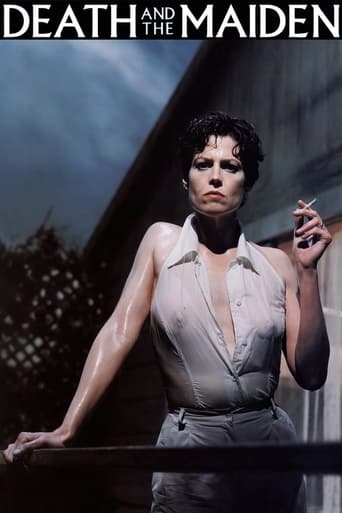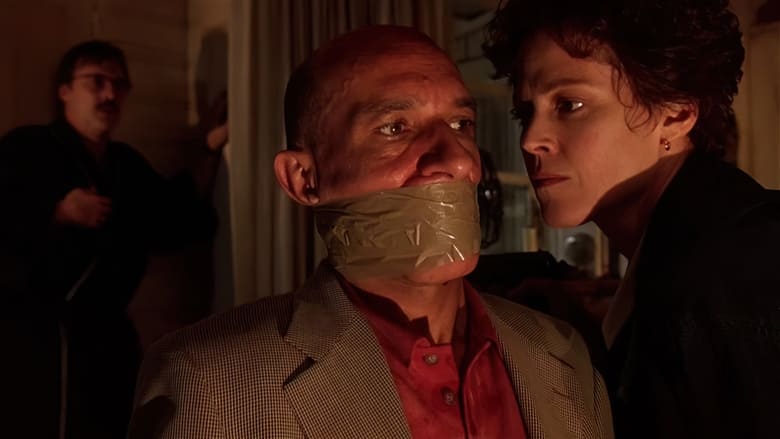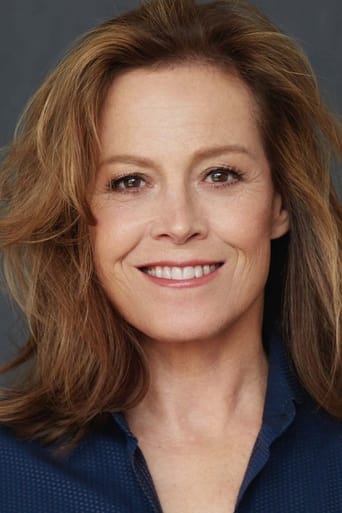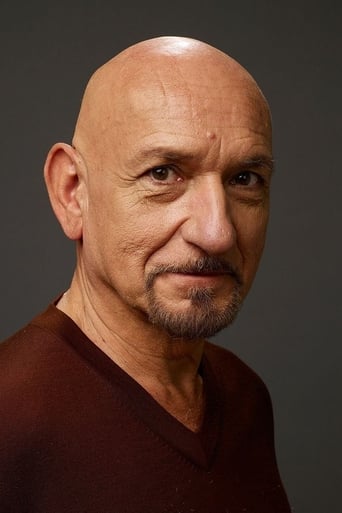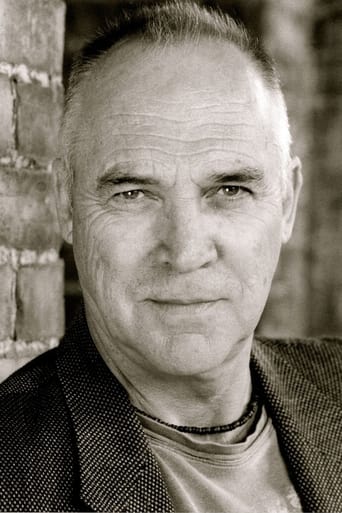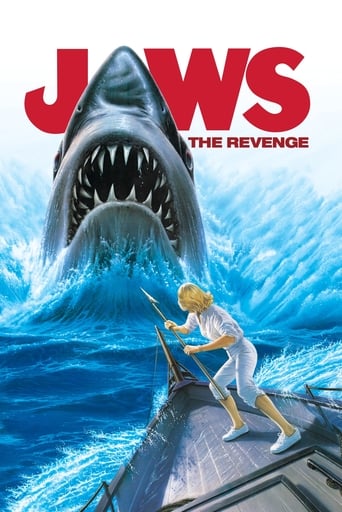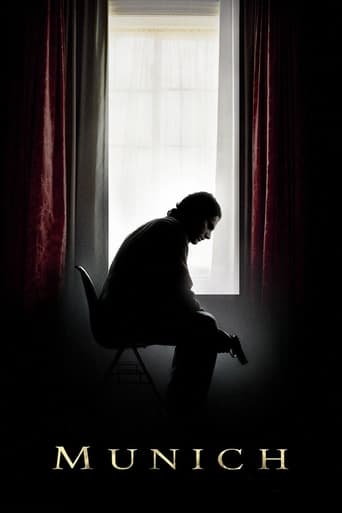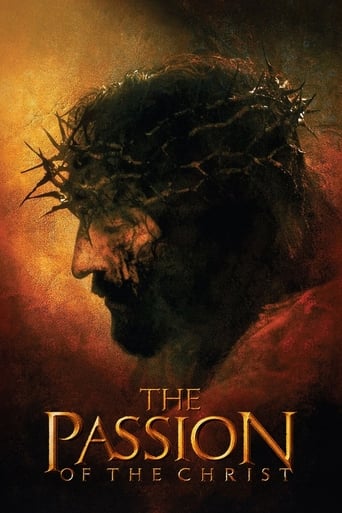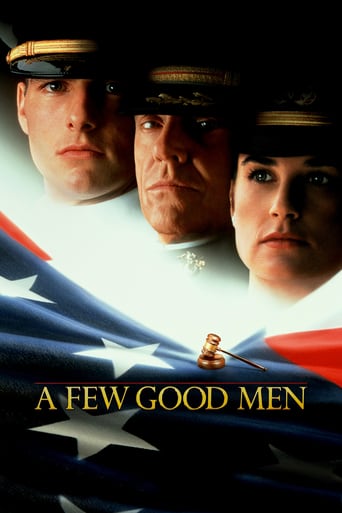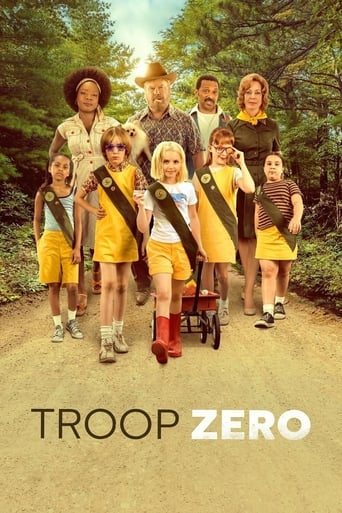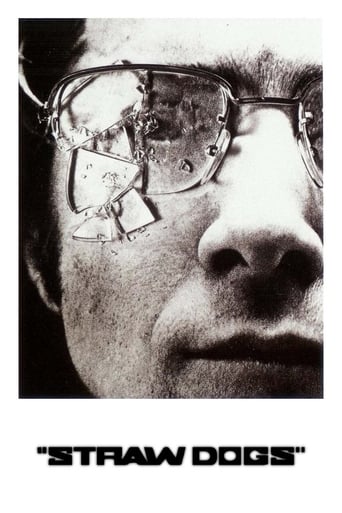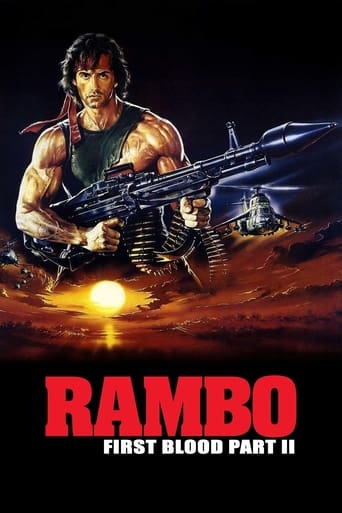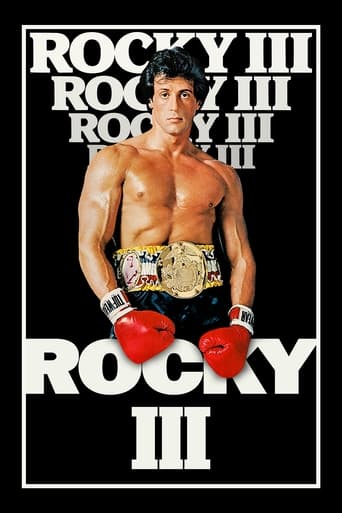Death and the Maiden (1994)
A political activist is convinced that her guest is a man who once tortured her for the government.
Watch Trailer
Cast


Similar titles
Reviews
Wonderful character development!
Highly Overrated But Still Good
Blistering performances.
Through painfully honest and emotional moments, the movie becomes irresistibly relatable
The movie script of "Death and the Maiden" is originated from a screenplay with the same name by Ariel Dorfman from Chile. This script has a great structure. The wife is listening to the radio while cooking the dinner. The news on the radio tells about foundation of a committee for investigation about tortures and crimes of the previous dictatorship naming someone as the head of this committee. The unusual attention of the wife leads the movie viewers to suppose a relation between the wife and those phenomena. The electricity went off. The fear of the wife might be because of hearing the thunderstorm or remembering past horrors. The wife ran quickly to a battery radio to continue listening to the news. Here, the viewer became sure about the importance of the news. The nervous attitude of the wife, going under the rain, smoking a cigarette and taking a gun by seeing a coming vehicle, either show this. Then, something else happens. The husband introduces himself to the vehicle driver - the doctor- and the viewers figure out that he is the head of the committee. This causes the viewers to forget their previous conclusions and think that the main reason of the wife's reactions is hearing her husband's name. While thinking about this, the dialogs between the couple return the viewers back to the first conclusion. The movie keeps the viewers in a reciprocating situation, which continues along the story. The husband thinks he knows everything about his wife's prison but figures out it was not. The wife gains new information about a sexual relation between his husband and another girl during her prison time and the viewers us not sure about the guilt of the doctor. This uncertainty is smartly placed in the script. In the other side, the battery radio used to show the importance of the news in the beginning of the film, was utilized again in the middle to prove the crime of the doctor without any encounter to went off electricity and plays the "Death and the Maiden" piece to show the title of the film.
Films like this generally are problematic. They are written as plays and kept as plays when carried over, so the filmmaker is limited to a preset notion of the space."Rope" was taken as a challenge in this regard, with a master visionary exploiting the confinement. It was, in effect, a learning experience for him without much reward for us, beyond what the play itself carried. Here in this film, we have something similar I believe. Polanski is a rare talent, a filmmaker that understands confinement — indeed his whole life is defined by the concept. He was approached to direct-for-hire and took the job, I believe, because he wanted a similar learning experience.So what we have here is a screenplay that was frozen before the man started his film and which he has taken unaltered. Someone else selected the actors, making what I think were bad choices. On this, Polanski designed the eye, making what I see as a whole different movie on top of the play.The play is about a woman who had been victimized by state torture. She believes she has encountered her torturer; the film is about the encounter and the extent to which you can trust her narrative or the accused. Her husband presides; he is literally a lawyer selected by the new president to sort out just these sorts of conflicting truths. The question is: will the accused confess? Well he does before the film is over, but was his confession true? Neither one of these two gives us much reason to trust them as characters. They both are liars. What Polanski does is subtly more the stance of the camera so that we alternate between who is the narrator so far as the lines compared to who is the aligned watcher and whose narrative space is tentatively trusted. It is a remarkable exercise, of just the kind that he would devour.I believe he used these skills in a similar weave of untrusted narrative in his next film, "Gate," which I think is an unappreciated masterpiece. But unless you happen to be tuned into this movie on a movie, this narrative about narrative, you will find this a pretty tame encounter.Unless you happen to live in a country that sponsors torture.Ted's Evaluation -- 2 of 3: Has some interesting elements.
This is one of the cinematic homes for this filmmaker. He swims comfortably in these waters. Polanski requires very little elements to induce great tension in any film. That's why he has looked for scripts like this, often in his career.This is a great thing, the ability to take very few scenery elements, in this case a single very small house, and the surrounding landscape, and build the narrative over that. Because that's what we have. The story is simple enough to produce no distractions, and the landscape is wide and desert enough to do the same. What we have is a whole set up that surrounds an idea of uncertain truth, provisional reality (to our eyes). That's why we never stop wondering whether Weaver is right or wrong, whether Kingsley is a rapist or a victim. So does Stuart Wilson, who goes through the same range of doubt as we, spectators, go, and that makes him our surrogate in the film. We are judges to our own sentence. All the cruelty of an invented regime of a supposed south American country is the mere formalization of the credibility of the world. It is not about denouncing crimes nor about discussing politics, as it has been said. Also, much has been said about how much the final monologue reveals the truth, i say it keeps all the possibilities opened, though it suggests sincerity.As an idea, this is as simple as it gets, and as every simple idea, it's so hard to achieve, keeping it simple. That's where things get interesting, when you check the cinematic devices that surround and collaborate with the simplicity of a simple doubt that this theatrical script suggests.First we have the core of the story framed, at beginning and end, by the core music, a quartet which names the film, and gives consistency to the drama of Sigourney's character.We have the handling of the wide open landscape, with its lighthouse. The sense of green isolation, the poetics of the location, which growths on us, as it is given in small bits, until becoming the final stage to the real drama.The house. This part matters, as this a film by a director who really knows how to handle space and include it in the drama. This is worth for a hotel room, a boat, or a small house. This is what he has been making throughout his life, in "knife in the water", his apartment trilogy, bitter moon and this one. It is something i admire, the ability to include the space that surrounds the characters into their dramas and discussions. That's one way, one of deepest ways to include (architectural) space in the fields of cinema. Orson Welles, Hitchcock (sometimes), Polanski... they all trust on their own camera.We have the acting at the center of the success of this film. Everyone of the 3 actors involved play at their top here, each one knows where he stands, and interprets perfectly what is required of him to make things flow. Ambiguity, to Ben Kinsgley, Messed up mind to Sigourney Weaver, Reactiveness and indecision to Stuart Wilson.This is less achieved than other efforts, but Roman never ceases to deliver his special gaze, and that's always worth seeing.My opinion: 4/5http://www.7eyes.wordpress.com
Hovering between giving this 9 or 10 out of ten, I quickly decided on the latter. If it's a perfect film, then a perfect score is surely appropriate. Three things have kept me from viewing this in the past, despite a great regard for the director's work going back forty years. One was the subject matter and the prospect of watching or listen tell of harrowing torture scenes. But the other two are the two leads. For some reason I have never taken to the work of Sigourney Weaver, I think maybe she appeared over rated for her role in Alien and never quite settled into much else. Ben Kingsley, I have felt also had a slightly over inflated view of himself and always had some problem with accents. Anyway, putty my pettiness behind me I watched a nail biting, thoroughly engrossing and exciting and thoughtful film. Beautifully paced and wonderfully performed by all concerned (except maybe for Kingsley's accent!) this is a must see piece of cinema. Not a wasted frame and just the right mix of action and dialogue allows the latter to shine as it deserves.

